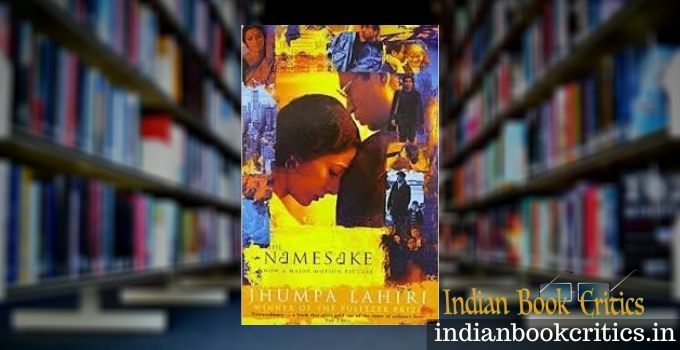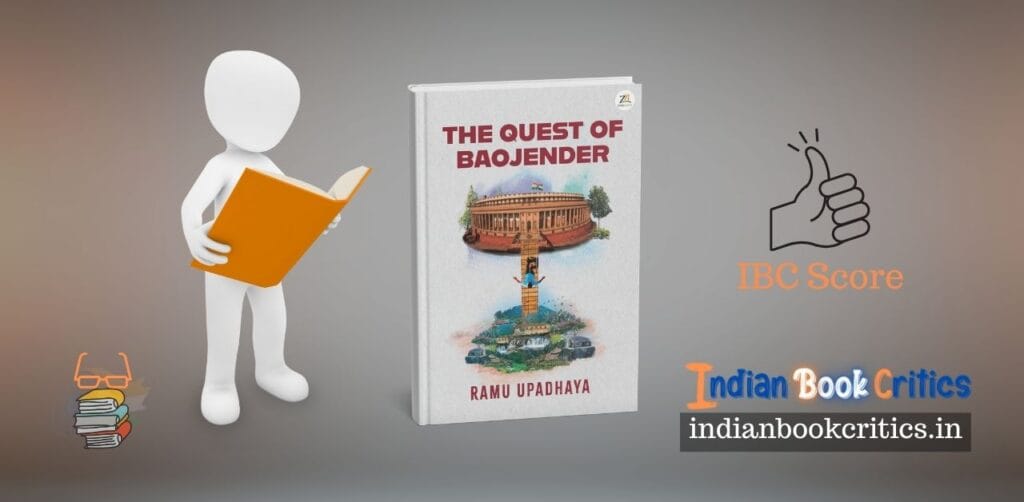The Namesake is the debut novel written by American novelist, with Indian origins, Jhumpa Lahiri. Though the novel is a classic example that we might name when it comes to depicting rootlessness and cultural hiatus experienced by the Indian diaspora, there are many other aspects that demands scrutiny and this review will attempt some of them. So, do read this book review carefully.
First of all, I have my reservations that I would like to put forth before I write anything about Jhumpa’s book. I don’t usually prefer reading books written by Indian diaspora for the reason that they don’t show the true and clear picture of India in most of the cases. They have special spectacles on their eyes which creates a jaundiced view, plagued with sophisticated prejudice, that doesn’t allow them to see the white as white and black as black. (Hold on, I am not a racist. The person who invented these words depicting colours should be held accountable for all the ‘English’ racism in the world.) They often tend to portray India as a backward country. So it is with great reluctance, I picked up The Namesake, written by Pulitzer winner Jhumpa Lahiri, and that too almost 17 years after it was first published. And here goes my review of it.
The central theme of the book is about immigrant experiences but it certainly limits to affluent and rich people. And there is another theme which focuses on the challenges associated with the dual identity of kids, gifted to them by their immigrant parents and a society which is left far behind and another society which is a little difficult to get along.
In the stories based on immigrant experiences, cultural comparisons are common and they appear in the narrative quite often. However, what matters is how these comparisons are portrayed. And I feel that Ms Lahiri could not do the best in this part. The comparisons are made to validate the modern and liberal United States at the cost of orthodox and backward India. Really? Does wearing a certain type of clothes or having sex with partners sans marriage decide how enlightened a country is? If that is the case, modern-day Pattaya should have been the richest part of the world!
In a nutshell, the story is about the ‘struggle’ of a Bengali family – the Gangulies, who leaves India to get settled in Central Square in Cambridge, Massachusetts post their wedding. Ashoke and Ashima are the first generation immigrants to the US. Ashoke being a student of engineering at MIT is almost comfortable with the foreign atmosphere, culture and food. But, it took time for Ashima to get accustomed to the peculiarities of a new country, a new language, new home, and new culture as she has never travelled abroad before marriage. Their Son Gogol, the protagonist, is tasked with living a dual identity –fitting in the Bengali culture as well as embracing the American lifestyle. The author has described, scene-by-scene, Gogol’s life’s journey until his divorce; how Gogol manages his dual identity, his parents’ expectations and his search for a suitable life-partner.
Now let’s jump to the title of the book – The Namesake – looks interesting, isn’t it? So, the protagonist of the novel, Gogol, is named after a famous Russian writer Nikolai Gogol. Young Gogol resents his moniker for its oddness and the strange genius after whom he was named until his father explains to him the true significance of his name and his identity.
There is no doubt that the author has excellent mastery and command over the language. Nonetheless, language alone cannot make a novel effective and impressive. There should be mood and an overall impression or something that we can call a concluding effect. The narrative is rather flat, without any spikes going upward or downward. It may, and should, make the readers experience un-happening! The novel is monotonous and it certainly does not inspire the readers to read it thoroughly unless the reader is a research scholar – compelled to bear the unacknowledged torturing discovery made by Edison… And it became hard to remember what exactly happened over the three hundred pages. I seriously took time to recall some of the incidents and frame my thoughts to write this review.
On a serious and critical note, the novel, The Namesake, just enjoys bashing human life to its lowest points. There is no or very little life in the lives of the characters who form the contour of this novel. It is really disappointing to see that modern novelists tend to sell lifelessness more than they celebrate life in their writings. You will get a sense of what am I trying to say once you begin reading the novel and manage to navigate to the main points and major episodes.
All I can say at the end is that the novel is not for modern readers who want to read something colourful and intense. This is good to be a one-day academic buzz and long-run propaganda piece but it fails to deliver any reading pleasure to the readers who come from common backgrounds other than literature. If you are a literature enthusiast and have a flair for the serious novels, you can bear it at your own cost. However, if you are just a reader and want to read something wonderful, go find something else.
(Sure?) Buy the Novel from Amazon India – click here
Review by Nidhi Parikh for Indian Book Critics
The Namesake by Jhumpa Lahiri – Book Review
- Indian Book Critics' Rating
Summary
The Namesake is a novel that confuses more than it tries to resolve the critical situations of the massive Indian diaspora abroad… the sordid lifelessness in this novel makes it difficult for the readers to digest what is being served in the name of fiction. Good for academic discourse and seminars but certainly not designed for the end-readers!





2 Comments. Leave new
When you say debut, Namesake was Jhumpa Lahiri’s first full-length novel. However, her debut in the literary world was with a collection of short-stories titled Interpreter of Maladies (1999). 🙂
I think you missed the word ‘novel’ added after debut, Jayanti. 🙂
Cheers.